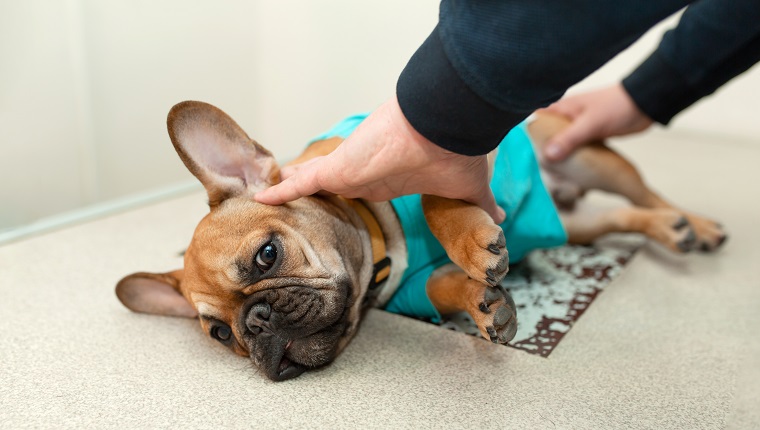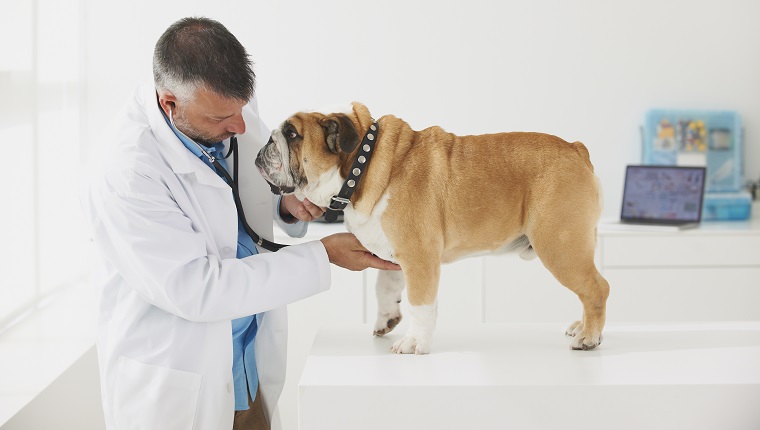Chest bone deformity in dogs, also known as pectus excavatum, is a medical condition that involves parts of the chest bone, called the sternum, becoming deformed and appearing to be flat or curving inwards
In general, short-nosed brachycephalic breeds of dog seem most likely to develop this type of deformity, and many cases of the condition are congenital, meaning they are present at birth.
If you see signs that your dog is suffering from any kind of bone deformity, then you must consult your veterinarian for a proper diagnosis and treatment. Here’s what you should know about the symptoms, causes, and treatments of chest bone deformity in dogs.
Symptoms Of Chest Bone Deformity In Dogs
Chest bone deformity in dogs can produce a number of symptoms. Some of the most frequent symptoms include:
- Breathing problems
- Vomiting
- Coughing
- Losing weight
- Lung infections
- Lowered appetite
- Struggling to exercise
Causes Of Chest Bone Deformity In Dogs

The cause of chest bone deformity in dogs is usually genetic. Many dogs who suffer from the condition are born with it.
Both male dogs and certain breeds of dog have a higher predisposition for developing this type of deformity. Some of the specific breeds of dog who have the highest risk include:
- Cavalier King Charles Spaniels
- Shih Tzus
- French Bulldogs
- Boston Terriers
- English Bulldogs
Veterinary Treatments
If you suspect that your dog is suffering from a chest bone deformity, then your veterinarian will want to ask a series of questions about their full medical history and any breed-specific issues they might have experienced. They’ll order blood and urine tests.
The use of X-rays can help to confirm a diagnosis.
When it comes to treatment, the precise course of action will depend on the severity of the condition. In mild cases, your dog might be able to continue on without any medical help. In some instances, vets can use corrective splints to treat the condition.
Additionally, vets may suggest a surgical procedure to rectify the issue in more extreme cases.
After receiving treatment, most dogs will require a course of physical therapy to help them recover. Additionally, vets may recommend the use of painkillers in some cases.
As ever, if your vet prescribes your dog any medicine, it is vital that you follow their precise dosage and frequency instructions and complete the full course of medication.
Has your dog suffered from a chest bone deformity? Did they need treatment for it from your veterinarian? Tell us all about it in the comments below.








